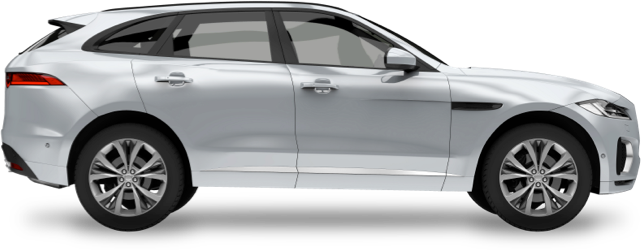- Online car rental since 2005
- Popular countries
- Popular regions
- Popular cities
- Popular airports
- Car Rental Italy
- Car Rental Spain
- Car Rental United States
- Car Rental Portugal
- Car Rental South Africa
- Car Rental France
- Car Rental Netherlands
- Car Rental Germany
- Car Rental United Kingdom
- Car Rental Greece
- Car Rental Austria
- Car Rental Switzerland
- Car Rental Croatia
- Car Rental Belgium
- Car Rental Norway
- Car Rental Ireland
- Car Rental Denmark
- Car Rental Australia
- Car Rental Canada
- Car Rental Mexico
- Car Rental Florida
- Car Rental England
- Car Rental California
- Car Rental Sicily
- Car Rental Tenerife
- Car Rental Mallorca
- Car Rental Sardinia
- Car Rental Ibiza
- Car Rental Madeira
- Car Rental Crete
- Car Rental Gran Canaria
- Car Rental Scotland
- Car Rental Malta
- Car Rental Azores
- Car Rental Corsica
- Car Rental Lanzarote
- Car Rental Fuerteventura
- Car Rental Rhodes
- Car Rental La Palma
- Car Rental Corfu
- Car Rental Amsterdam
- Car Rental Milan
- Car Rental Miami
- Car Rental Lisbon
- Car Rental Malaga
- Car Rental Porto
- Car Rental Cape Town
- Car Rental Rome
- Car Rental Alicante
- Car Rental Bergamo
- Car Rental Barcelona
- Car Rental London
- Car Rental Faro
- Car Rental Munich
- Car Rental Orlando
- Car Rental Vienna
- Car Rental Nice
- Car Rental Johannesburg
- Car Rental Geneva
- Car Rental Dublin
- Car Rental Amsterdam Schiphol Airport
- Car Rental Miami International Airport
- Car Rental Lisbon Airport
- Car Rental Malaga Airport
- Car Rental Porto Airport
- Car Rental Milan Malpensa Airport
- Car Rental Alicante Airport
- Car Rental Bergamo Airport
- Car Rental Rome Fiumicino Airport
- Car Rental Cape Town Airport - International Terminal
- Car Rental Faro Airport
- Car Rental Orlando International Airport
- Car Rental Barcelona Airport
- Car Rental Munich Airport
- Car Rental Vienna Airport
- Car Rental Bari Palese Airport
- Car Rental Nice Airport
- Car Rental Bologna Airport
- Car Rental Los Angeles International Airport
- Car Rental Dublin Airport

Car Rental Luxembourg
Save time and money. We compare the offers of car rental companies in Luxembourg on your behalf.
- Free cancellation Up to 48 hours prior to the scheduled pick-up time
- Best price guarantee Have you found a better price? Let us know and we will make you a better offer.
- 24000+ pick-up locations Locations around the world

Car Rental Luxembourg
EasyTerra Car Rental Luxembourg is an independent car rental comparison site. Our site compares prices from well-known car rental companies so that, as a customer, you can always reserve your car with us at a competitive rate.
Car rental offers in Luxembourg
Whether you're looking for a small rental car or a station wagon for the entire family, we will always have a suitable vehicle at the lowest price. Below are some examples from our selection in Luxembourg.

-
Avis From€ 23 /day -
Budget From€ 23 /day

-
Hertz From€ 23 /day -
Thrifty From€ 24 /day

-
Budget From€ 28 /day -
Avis From€ 29 /day

-
Alamo From€ 23 /day -
Enterprise From€ 26 /day

-
Enterprise From€ 25 /day

-
Hertz From€ 28 /day

-
Budget From€ 27 /day

-
Alamo From€ 28 /day -
Enterprise From€ 32 /day

-
Budget From€ 32 /day -
Avis From€ 34 /day

-
Keddy By Europcar From€ 22 /day -
Europcar From€ 23 /day

-
Budget From€ 23 /day -
Hertz From€ 23 /day -
Thrifty From€ 24 /day

-
Europcar From€ 26 /day -
Avis From€ 33 /day

-
Europcar From€ 23 /day -
Avis From€ 28 /day

-
Hertz From€ 23 /day -
Budget From€ 36 /day

-
Europcar From€ 26 /day -
Keddy By Europcar From€ 28 /day

-
Alamo From€ 24 /day -
Enterprise From€ 26 /day

-
Avis From€ 24 /day -
Budget From€ 28 /day -
Enterprise From€ 31 /day

-
Budget From€ 28 /day -
Hertz From€ 28 /day

-
Budget From€ 26 /day -
Thrifty From€ 26 /day -
Hertz From€ 27 /day

-
Thrifty From€ 26 /day -
Hertz From€ 33 /day

-
Europcar From€ 29 /day -
Budget From€ 38 /day -
Avis From€ 42 /day

-
Avis From€ 26 /day -
Budget From€ 28 /day

-
Europcar From€ 27 /day -
Enterprise From€ 29 /day -
Avis From€ 35 /day

-
Hertz From€ 29 /day -
Budget From€ 33 /day -
Sixt From€ 42 /day

-
Alamo From€ 28 /day -
Enterprise From€ 29 /day

-
Europcar From€ 28 /day

-
Budget From€ 30 /day -
Avis From€ 30 /day

-
Thrifty From€ 31 /day -
Hertz From€ 35 /day

-
Keddy By Europcar From€ 31 /day -
Europcar From€ 37 /day

-
Keddy By Europcar From€ 38 /day -
Europcar From€ 38 /day

-
Thrifty From€ 33 /day -
Hertz From€ 36 /day

-
Alamo From€ 34 /day -
Enterprise From€ 36 /day

-
Europcar From€ 38 /day -
Budget From€ 49 /day

-
Avis From€ 35 /day -
Thrifty From€ 41 /day -
Sixt From€ 42 /day

-
Avis From€ 36 /day

-
Hertz From€ 38 /day

-
Europcar From€ 40 /day

-
Sixt From€ 40 /day

-
Europcar From€ 43 /day

-
Europcar From€ 43 /day

-
Europcar From€ 45 /day

-
Europcar From€ 44 /day

-
Europcar From€ 44 /day

-
Europcar From€ 45 /day

-
Alamo From€ 45 /day -
Enterprise From€ 58 /day

-
Hertz From€ 44 /day -
Budget From€ 57 /day

-
Sixt From€ 49 /day

-
Hertz From€ 55 /day -
Budget From€ 63 /day

-
Hertz From€ 55 /day

-
Sixt From€ 64 /day

-
Sixt From€ 58 /day

-
Sixt From€ 60 /day

-
Sixt From€ 66 /day

-
Avis From€ 64 /day

-
Avis From€ 47 /day -
Budget From€ 62 /day

-
Hertz From€ 48 /day

-
Europcar From€ 56 /day

-
Hertz From€ 53 /day

-
Sixt From€ 54 /day

-
Avis From€ 61 /day -
Budget From€ 61 /day

-
Sixt From€ 54 /day

-
Sixt From€ 54 /day

-
Hertz From€ 67 /day

-
Thrifty From€ 32 /day -
Hertz From€ 33 /day

-
Budget From€ 33 /day

-
Hertz From€ 35 /day

-
Sixt From€ 35 /day

-
Budget From€ 38 /day -
Avis From€ 42 /day

-
Avis From€ 35 /day -
Budget From€ 36 /day

-
Budget From€ 41 /day

-
Sixt From€ 43 /day

-
Europcar From€ 45 /day

-
Europcar From€ 52 /day

-
Europcar From€ 54 /day

-
Europcar From€ 56 /day

-
Europcar From€ 57 /day

-
Sixt From€ 66 /day

-
Sixt From€ 72 /day

-
Sixt From€ 103 /day

-
Sixt From€ 116 /day

-
Alamo From€ 28 /day -
Enterprise From€ 29 /day

-
Avis From€ 34 /day -
Budget From€ 57 /day

-
Avis From€ 36 /day -
Budget From€ 64 /day

-
Alamo From€ 35 /day -
Hertz From€ 36 /day -
Enterprise From€ 37 /day

-
Hertz From€ 47 /day

-
Sixt From€ 41 /day

-
Sixt From€ 42 /day -
Avis From€ 46 /day

-
Keddy By Europcar From€ 48 /day -
Europcar From€ 51 /day

-
Europcar From€ 44 /day

-
Budget From€ 27 /day -
Hertz From€ 38 /day

-
Hertz From€ 29 /day

-
Budget From€ 36 /day

-
Keddy By Europcar From€ 31 /day -
Europcar From€ 37 /day

-
Keddy By Europcar From€ 38 /day -
Europcar From€ 38 /day

-
Hertz From€ 39 /day

-
Europcar From€ 42 /day

-
Europcar From€ 43 /day

-
Sixt From€ 47 /day
Useful tips for a well-prepared trip
Which insurance should I choose, and what's the deal with the deposit? Read our articles with useful information and tips to ensure you choose the right rental car for you.
Car rental locations in Luxembourg
EasyTerra Car Rental compares rental car prices at the following destinations

Location information for Luxembourg
Luxembourg is best explored by rental car. EasyTerra Car Rental has over 4 pick-up locations in Luxembourg. This means there is always a pick-up location close to your destination.
Most popular car hire locations in Luxembourg
Introduction
Land of castles, valleys and forests; Luxembourg is small, but has a lot of variation in its nature and culture. This great diversity is also represented in the three official languages of the country: French, German and Luxembourgish. A large part of the population of the Grand Duchy originates from neighboring countries such as Germany, France and Belgium.
The historic capital also bears the name Luxembourg. The country has preserved the traces from history and became at the same time a thriving nation in Northern Europe. Tourists come here to hike and to cycle. Motorcyclists also cherish this place. The old castles and ruins are well-known attractions. Besides all this, visitors come to Luxembourg to taste the exuberant lifestyle in picturesque villages and vineyards alongside the river Mosel.
History
In the year 963 Siegfried, Count of Ardennes built his castle on a high rock along the road from Reims to Trier. The fortress was called 'Lucilinburhuc', which means 'little castle'. Around Lucilinburhuc arose a settlement which developed into the capital of the county of Luxembourg.
Siegfried's successors were vassals of the Holy Roman Empire. In 1345 the German emperor Charles IV made the county into a duchy which at the same time became part of the German Empire. The duchy expanded quickly, which also made the capital an object that many desired to conquer. Its strategic position made the capital very attractive. Over four hundred years the capital was besieged twenty times. Burgundians, Spaniards, French, Austrians and Prussians all made their attempts to conquer the fort, but its nickname 'Gibraltar of the North' turned out to be rightfully owned.
Eventually, in 1795 Napoleon I succeeded to get hold of the city. The duchy was renamed into 'Département des Forêts'. On the historic date 1815 it was reconquered. This is how William I of the Netherlands became Grand Duke of the province Luxembourg. In 1839 The Treaty of London detached the French region and made it part of Belgium. That what was left of Luxembourg became united with the Union of the Netherlands. When William III past away in 1890 without having any male heirs, Luxembourg became a sovereign Grand Duchy.
In the First as well as in the Second World War, the Germans invaded and occupied Luxembourg. September 1944 became a memorable day to the Grand Duchy: the country had suffered great losses, but was eventually liberated from its occupier.
After World War II Luxembourg recovered quickly. The country joined the Benelux and the NATO. Besides this, it was one of the founders of the European Economic Community, which became the European Community later on. Since 1999 the currency in Luxembourg is the Euro.
Society and culture
The 480.000 inhabitants that live in Luxembourg are mainly concentrated in and around the cities. People are gradually leaving the country side. Gutland in the south, Ösling in the north and Müllerthal in the east are magnificent regions with villages and small towns, every one of them. One fifth of the population lives in the capital. Since 1994 the old town centre and the city walls are on the World Heritage List of UNESCO.
Around forty percent of the inhabitants of the Grand Duchy of Luxembourg originate from other countries. Many public servants of the European Union immigrate to the capital and the surrounding area. Apart from them, more than ten percent of the population consists of Portuguese guest workers.
The languages spoken in Luxembourg are French, German and the Lëtzebuergesh (Luxembourgish). These languages exist harmoniously next to each other. Most Luxembourgers speak all of them fluently. In 1984 the Lëtzebuergesh, which is closely related to German, was declared the official language. However French is the language of regulations, legal matters and government declarations. Foreigners can also use English in Luxembourg.
Since 1870 the Grand Duchy is a bishopric. Approximately ninety percent of the population is Roman-Catholic. The Lutheran church has been present in Luxembourg since 1894, but counts only 1500 members. Migration brought Islam to Luxembourg. Of old, there also lives a small Jewish population in Luxembourg.
The population of Luxembourg is generally speaking, very tolerant. The religious identity of the Luxembourgers is quite developed, but also leaves room for the ideologies of immigrants. At the same time, popular saints have helped to anchor Roman-Catholicism in society.
Octave is one of the annual happenings in Luxembourg. From the third till the fifth Sunday after Easter, people from all over Luxembourg travel to the capital to worship a small statue of the Holy Virgin. From the seventeenth century onwards this pilgrimage ends with a procession carrying the statue through town. The Grand Duke and his family are present every year.
Political situation
Luxembourg has a constitutional monarchy with succession. The present Grand Duke of Luxembourg is Hendrik. Generally speaking the Luxembourgian population is very satisfied with the Grand Duke and his family. The country has a parliamentary form of government. The executive power lies with the Grand Duke and the government. The Chamber of Deputies has legislative power and is chosen for a period of five years. There is also a Conseil d'Etat, Council of State. This body consists of 21 civilians and advises the Chamber of Deputies. The Grand Duke is the one who assigns the members of the Council of State. The political climate of Luxembourg is very mild and peaceful, also because of the only slightly differing political agenda's of the various political parties.
Economy
The agricultural society of Luxembourg has developed over the centuries into one of the most modern and richest countries in the world. The capital Luxembourg is a very prosperous European city and also an important financial centre. Like in Brussels and Strasbourg, there are also many European institutions in Luxembourg City. The country has a stable economy with high incomes and a low percentage of unemployment.
Since the second half of the last century, the number of agricultural companies dropped by sixty percent. Many Luxembourgers find jobs in the service industry nowadays. Around seventy percent of the working class is active in this sector.
Tourism is, together with banking, an important part of the service sector. Especially the Müllerthal in the east is frequently visited. Apart from Müllerthal, the cities of Clairvaux, Echternach, Vianden and Wiltz are popular tourist destinations. All of them have fortresses and castles. Vianden is a lively town along the river Our. The castle towering over Vianden is completely restored and open to visitors.
Until recently, the production of steel has been an important source of income. Nowadays, the Luxembourgian industry is more diverse and concentrates on chemistry and rubber, among others.
Geography and climate
Luxembourg occupies a modest area of 2,586 square kilometers. The country borders on its neighboring countries Belgium, France and Germany. In the south, the river Mosel forms a natural border.
Directly north of the capital lies Gutland. The main attraction of this sloping agricultural area is the town Diekirch on the banks of the river Sûre. On another river, the Eisch, lies the valley of the Seven Castles (Vallée des Sept Châteaux). Unfortunately, none of these seven castles are open to the public.
The region north of Luxembourg has green valleys with fast flowing rivers, above which tower medieval castles. It is a charming scenery. Luxembourgers call this area, which is part of the Ardennes, Ösling. The highest peak of Luxembourg, the Kneipp, also lies in this area.
In the east lies the Müllerthal. This region also bears the name 'Small Switzerland'. Though the landscape bears little resemblance to the Swiss Alpine meadows. Century old rivers flow through deep clefts and sandstone plateaus. Water has worn away the sandstone over the years and columns were formed. The Müllerthal is renowned for its unspoiled scenery and fairy-tale atmosphere. Hikers can live their passion up to their heart's content. Footpaths direct you over longer or shorter routes. One of the most popular trails leads past the waterfall the Schiessentümpel.
There are also no extremes in the weather in Luxembourg. You can enjoy mild summers and cool winters in this country. Because the Ardennes offer protection, the Luxembourgian climate can be characterized as a moderate maritime or weak continental climate. During May and June the sun shines the most. July and August are the warmest, while September and October have most rainfall.
Traffic and infrastructure
The country has one international airport. It lies in the city of Luxembourg. Airport Luxembourg-Findel is one of the busiest airports in Europe concerning cargo. Luxair is Luxembourg's company that takes care of the passengers. Cargolux is also located on the airport Luxembourg-Findel. This company transports cargo. It is not possible to take domestic flights in Luxembourg.
The railway network is sparse. The national company CFL does not only look after the train, but also the bus transport. From Luxembourg rail roads lead to Germany in the east, France in the south and Belgium in the north. Trains have first as well as second class carriages. Different passes and reduced fare-cards can be obtained.
The bus transport in the cities is excellent. The public transport goes until midnight in the big cities and till ten o'clock in the smaller towns. Bus transportation to villages is not always as frequent. On Sundays, transport is very limited.
Highways in Luxembourg are limited to the south around the capital. Those who go by car from Luxembourg City will soon find themselves on country roads. These lead through romantic surroundings, over hills and through valleys, forests and villages.
Food and drink
The Luxembourgian cuisine is based on the Belgian and German cuisine. The different regions offer special dishes though. Ardennes ham, black pudding with mashed potatoes and Luxembourgian pâté are typical Luxembourgian foods. Game and fish are also present on many menus. One of the most characteristic specialties of Luxembourgian cuisine is Judd mat gaardebohnen. This dish is made from the smoked neck of pork with broad beans and savory. Especially in summer one can enjoy the fresh fish, such as trout, from the local rivers. You should also try a Luxembourgian Diekirch beer with your meal.
The Mosel valley of Luxembourg is one of the smallest wine regions in Europe. The 'Route du Vin' follows the Mosel from Schengen at the border, past Remich and Grevenmacher, and ends in Wasserbillig at the border with Germany. There are several wine cellars that offer tours. Especially the white wines are worth a tasting. In August, the wine festivals start. They end with the festival of Wormeldange in November.
Time zone
Luxembourgian time is GMT/UTC +1. This is the Middle European Time (MET), or Central European Time (CET). Another abbreviation often used is UTC (Coordinated Universal Time). It is almost equal to GMT. UTC refers to atomic time, while GMT refers to astronomic time. In summer the clock is put one hour forward in Luxembourg. This makes the evenings longer.
Accommodation
Spending the night in Luxembourg City can't be characterized as cozy and atmospheric. Hotels mainly aim at business travelers. Young people can also spend the night in a hostel. Outside the capital romance takes over and there are not only cozy little hotels with magnificent views, but also a lot of camp sites. Luxembourg is a country that invites tourists to camp. Hikers can also use the huts which are all at walking distance from each other, especially in districts with many hiking trails.
External sources
For more information about Luxembourg we recommend Google and the following sources:
- Wikipedia, Luxembourg
- Luxembourg City Tourist Office
Practical information
-
CurrencyEuro
-
Driving directionRight
-
City speed limit50 km/h
-
Freeway speed limit90 km/h
-
LanguageGerman, French, Luxembourgish
-
Popular car categoryEconomy
What most people want to know
The following questions and answers are a selection of the most popular questions. If you do not find the answer to your question, have a look at the Frequently Asked Questions page or contact us.
- Europcar
- Enterprise
- Alamo
- Budget
- Sixt
- Thrifty
- Hertz
- Keddy By Europcar
- Avis
- InterRent
- Dollar Rent a Car
- National Car Rental
- Red Spot Car Rental
- Your Rent



